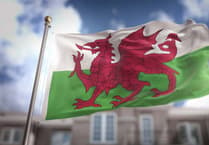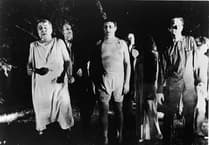TOWNS which have seen all their bank branches closed could see a form of high street banking return under proposals being put forward by Labour.
In the whole of England there are now just 3,208 bank branches, and towns such as Cinderford, Coleford and Newent in the Forest of Dean district have all seen their bank branches close in recent years.
Stroud constituency has seen 66% of its high street bank branches close since 2015.
Labour Party findings show only seven remain in Stroud and they say their pledge will stop the decline of the great British high street.
If Labour win the next general election they claim they will accelerate the roll out of ‘banking hubs’ which help people deposit and take out cash as well as get financial advice and help with banking services.
This could be achieved by working with banks and, where necessary, bring in new powers for the Financial Conduct Authority to stop people being left in ‘banking deserts’ guaranteeing communities access to face-to-face banking services.
Labour claims their plan could see at least 350 banking hubs established across the country which are shared by the major banks and building societies.
Customers from ten different banks and building societies could all use the hub.
As part of Labour’s pledge, areas that currently don’t have high street banks will be first in the queue.
Labour County Councillor and Cinderford Town Council chairman Graham Morgan said the proposals are something they’ve been asking for for a long time.
“We lost all our banks,” he said.
“People were coming over here from Coleford at one time but obviously they don’t come now because there’s nothing here.
“These banks have gone the wrong way, they’ve got no customer service on the phone at all.
“When you call these stupid numbers up you’re on there 20 to 30 minutes then you get cut off or pushed around. It’s ridiculous.”
“But a banking hub would be a good thing. We’ve still got the old Lloyds bank empty in Cinderford. They should have left a banking hub in each town, that’s the minimum they could have done.”
County Councillor David Drew (L, Stroud Central) said it was a good proposal and people cannot just be expected to have bank cards.
“We’ve only got one main bank in the town now, all the others have gone,” he said.
“I was staggered when HSBC chucked it in. It means Lloyds is the only genuine bank which does all the banking services.”
Labour’s shadow business secretary Jonathan Reynolds says the country’s high streets have been allowed to fall into decline with banks closing.
He says the policy would be paid by the banks and not the taxpayer. They would share the cost of the hub based on their market share in the local community.
“The deal for them is because they are doing it collectively it’s a significantly lower cost than running a bank branch.”
He said FCA figures from 2018 suggest it costs an average of £580.000 to run a bank branch but banking hubs would cost around £300,000 and that would be split between banking institutions.
“Labour will put an end to boarded up premises and ghost high streets with our plan to bring banks back to the high street, fix business rates, tackle empty properties and get police back on the beat on your high street.
“Only Labour has a plan to give your high street a bright future.”
Stroud’s Labour parliamentary candidate Simon Opher says people shouldn’t need to travel far just to get the money they need to spend in our local communities.
“Labour’s plans for small businesses will mean that we can find pride in our local high streets again,” he said.




